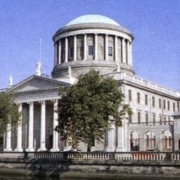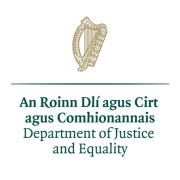BERKELEY SOLICITORS CONGRATULATES THE SUCCESSFUL APPLICANT AND LEGAL TEAM INVOLVED IN RECENT JUDICIAL REVIEW CASE
Berkeley Solicitors offers its congratulations to the successful applicant and legal team involved in the recent judgement MAH v The Minister for Justice , delivered on 30th April 2021.
The case involves a Somalian national who was granted refugee status in Hungary after fleeing from violent threats she had received from a fundamentalist group.
After facing further violence in Hungary, the applicant arrived in Ireland in 2016, where she applied for permission to reside.
The applicant is a qualified doctor and volunteers as a translator for members of the Somalian community and also with the Irish Cancer Society. Her lack of legal status in Ireland meant that she was unable to work in the State.
In February 2020, a deportation order was issued to the applicant, which was the subject of the Judicial Review proceedings before the High Court.
It was argued on behalf of the applicant that returning her to Hungary would amount to inhumane and degrading treatment, in breach of Article 3 of the Convention of European Human Rights.
In the judgment of Ms Justice Burns it is referenced that the applicant’s rights were not sufficiently protected in Hungary and that the Hungarian government were hostile towards migrants.
Ms Justice Burns assessed the Respondent’s consideration under Section 3 of the Immigration Act 1999 as amended, and stated her findings as follows:
I am of the view that the Respondent incorrectly assessed the COI; failed to consider whether the presumption that her fundamental rights would be upheld in Hungary had been rebutted; and failed to properly consider the Applicant’s employment prospects pursuant to s. 3(6)(f) of the 1999 Act, the Respondent’s determination in respect of the Deportation Order is vitiated by these errors.
In granting the applicant the reliefs sought, Ms Justice Burns summarised that:
‘the founding architects of the system of international protection which is in place in Europe today, would be of the view that we, as a people, have badly failed the Applicant in this case.’
Berkeley solicitors welcomes this very fair and just decision and hopes that it will benefit both the applicant and other non-nationals within similar circumstances.
If you require advices regarding any matters raised in this article, please do not hesitate to contact Berkeley Solicitors.



